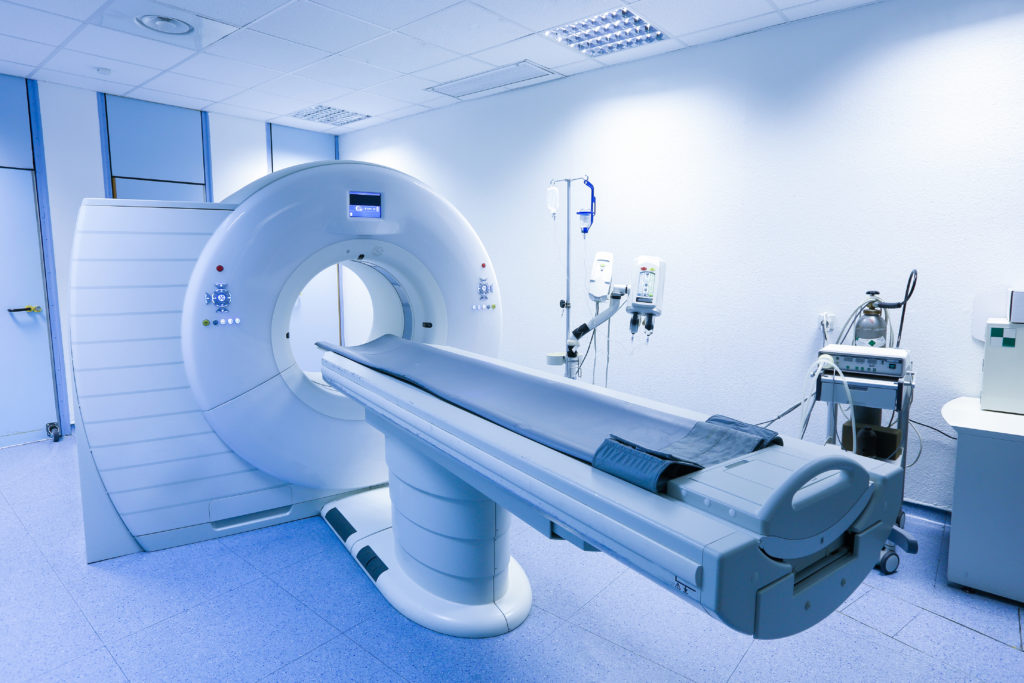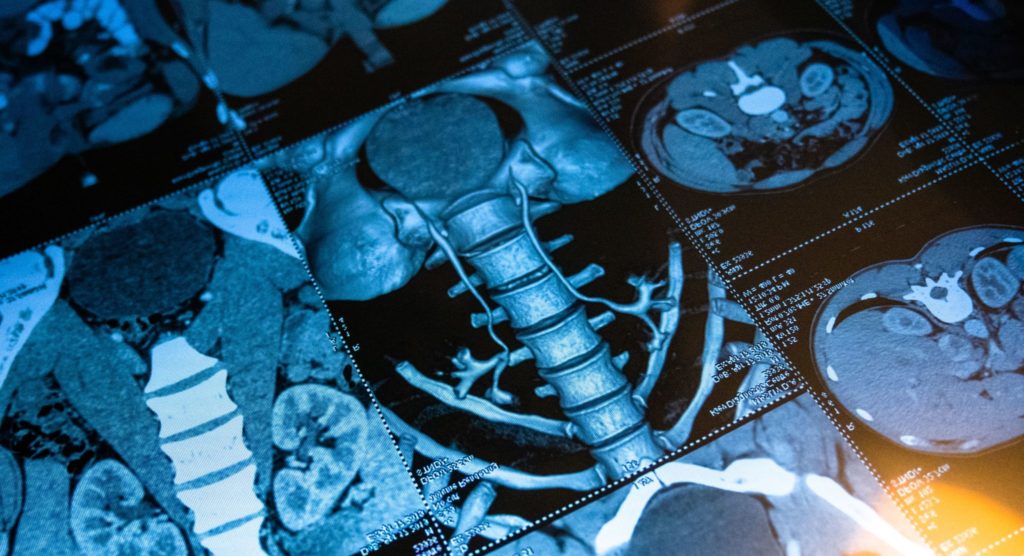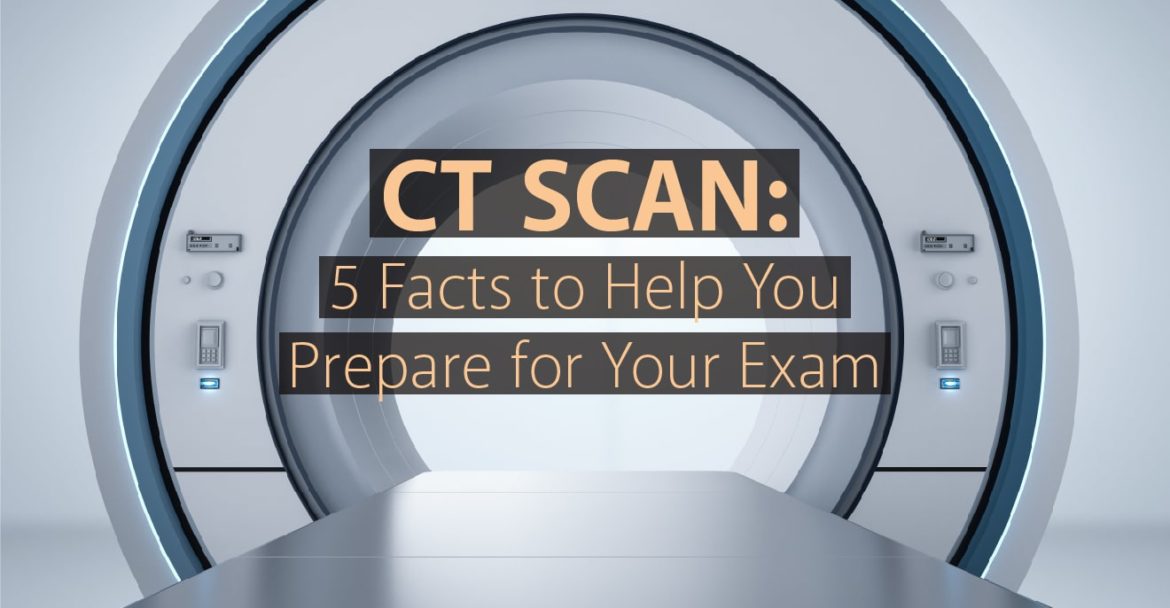A CT scan gives doctors a detailed view into your body, allowing them to diagnose a wide range of medical conditions as well as plan and monitor treatment. Learn five key facts about CT scans to help you prepare for your exam. And talk to your care provider about scheduling your CT scan at UVA Radiology and Medical Imaging.
1. A CT Scan Takes Images in Slices
A CT scan is state-of-the-art medical imaging that give doctors a detailed view into your body. CT scans, like x-rays, use ionizing radiation to create a set of images from many different angles. These images are like “slices” that, when put together, make a single, highly detailed image.
CT scans are used for anything from pinpointing the location of a tumor to checking for internal bleeding after trauma. Doctors use CTs to plan surgeries and other medical procedures as well as monitor conditions and treatments.
The “CT” in “CT scan” stands for computerized tomography. The scan is controlled by a computer, hence “computerized.” “Tomography” comes from the Greek word “tomos,” which means “slice” or “section.”
2. The Scanner Looks Like a Large Ring or Donut

CT scans are performed by a radiologic technologist who will guide you through the whole procedure.
If you’re having a scan done, you’ll start by lying on the table attached to a CT machine. The CT machine looks like a large ring or donut big enough for you and the table to fit into. During the exam, the table slides into the hole, also called the bore, of the machine.
Once you’re in place, the internal parts of the CT machine will start to spin around you, but because of the machine’s casing you won’t be able to see this happening. You will, however, hear loud whirring noises as the internal parts spin around you. The CT machine may also move over you as it is scanning, depending on what body part is being scanned.
3. During the Scan, You’ll Have to Stay Still
Any movement during a CT could cause a blurry image, so you’ll need to stay still as possible. Even something as minor as breathing can affect the image. Depending on where the scan is focusing on, the technologist may ask you to briefly hold your breath.
Your scan could take anywhere between a few minutes to an hour. Using an intercom system, you’ll also be able to talk to the radiologic technologist at any time during the procedure if you experience any discomfort or anxiety.
4. Some CTs Require the Use of Contrast Dye

In certain cases, the CT scan may need to be performed after you’ve taken medical contrast dye. If contrast is needed, you’ll be asked take it orally or intravenously, depending on the procedure. This will increase how long the procedure takes because the contrast will need time to make its way through your body.
5. CT Scans Use Radiation, Like Traditional X-Rays
CT scans use radiation, which, in large enough doses, can raise a patient’s risk of cancer. But know that the risk of developing cancer from a CT is very low.
Remember that by ordering the exam, your doctor has determined that the risk from radiation is outweighed by the benefit of the exam. The information your doctor gains from a CT scan can help them make important diagnoses and plans for your treatment. Ultimately, a CT may provide critical information about your health.
If you’re concerned about being exposed to radiation, ask about other imaging exams that could be done as an alternative to a CT scan. And talk to your doctor to make sure you’re within the healthy range for lifetime radiation exposure. You can also use this online calculator to determine your lifetime radiation risk, or read our article on radiation.
Have Your CT Scan at UVA Health
Regardless of the specifics of your CT, the radiologists and radiologic technicians at UVA Radiology and Medical Imaging will do everything they can to make sure you have a good experience. They will work to explain the exam procedure to you, make you comfortable during the exam, minimize your radiation exposure, and provide clear and detailed results.
Ask your care provider to refer you to UVA Radiology and Medical Imaging for your CT scan. Call (434) 982-6600 to schedule a consultation or ask about an upcoming scan.



